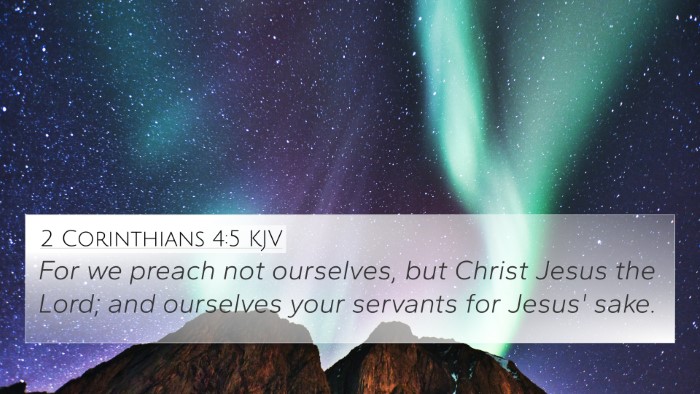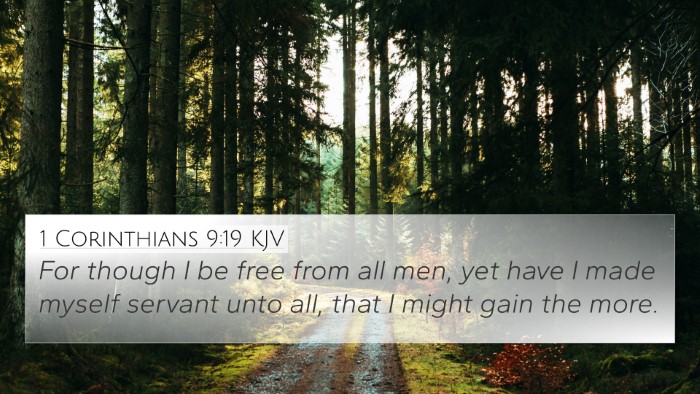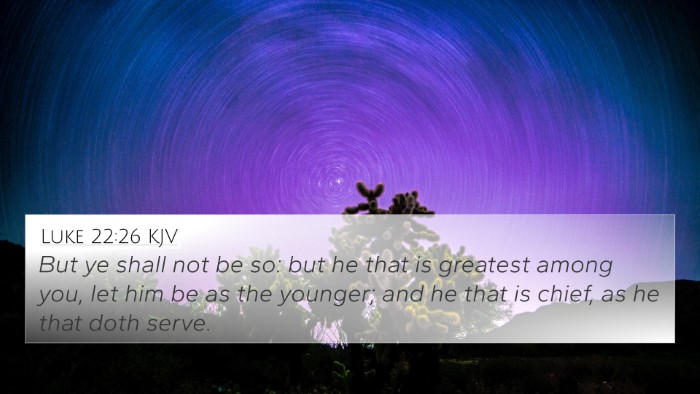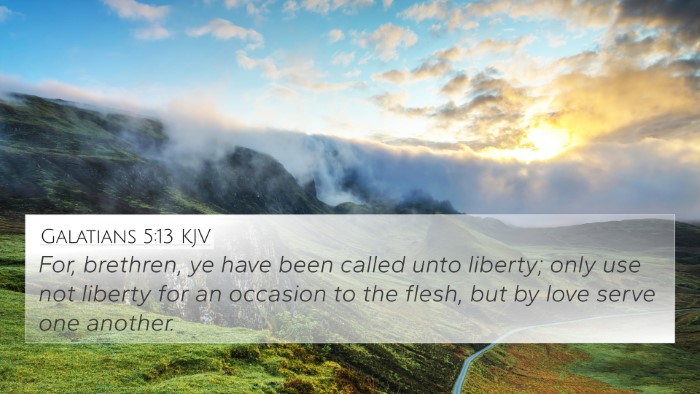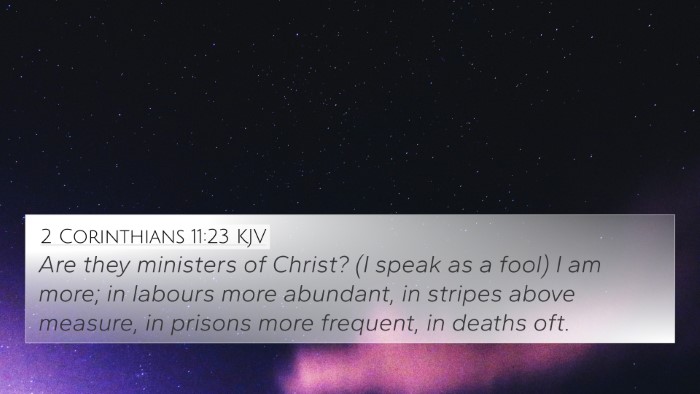Understanding Matthew 23:11
Matthew 23:11 states: "But he that is greatest among you shall be your servant."
This verse encapsulates a theme of humility and service, core teachings of Jesus that challenge traditional notions of greatness and authority.
Meaning and Interpretation
In this verse, Jesus speaks directly to the attitudes of the Pharisees and religious leaders of His time, where they sought status and recognition. The implication here is twofold:
- Redefinition of Greatness: Greatness is not found in authority or power, but in servitude. Jesus flips the conventional ideas of leadership by presenting the servant as the true leader.
- Call to Humility: The call to servanthood is a significant theme throughout the Bible, emphasizing that true honor comes from serving others.
Commentary Insights
Insights from Matthew Henry, Albert Barnes, and Adam Clarke shed additional light on this verse:
- Matthew Henry: He points out that the essence of Christ’s teaching here is that those who lead must do so with a servant's heart. Leaders in the church are to model humility, drawing on Christ’s own example.
- Albert Barnes: Barnes elaborates on the idea that 'greatness' in the kingdom of God contrasts with worldly definitions. He notes that Jesus' followers are called to serve rather than to be served, thus embodying Christ's teachings.
- Adam Clarke: Clarke emphasizes that the principle encapsulated in this verse extends to all believers, not just leaders. Each individual is called to exemplify Christ-like service in every aspect of life, signifying that true leadership is found in humility.
Bible Verse Cross-References
Matthew 23:11 connects with several key biblical passages that highlight the themes of service and humility. Notable cross-references include:
- Mark 9:35: "If any man desire to be first, the same shall be last of all, and servant of all."
- Luke 22:26: "But ye shall not be so: but he that is greatest among you, let him be as the younger; and he that is chief, as he that doth serve."
- John 13:14-15: "If I then, your Lord and Master, have washed your feet; ye also ought to wash one another's feet. For I have given you an example, that ye should do as I have done to you."
- Philippians 2:3-4: "Let nothing be done through strife or vainglory; but in lowliness of mind let each esteem other better than themselves."
- 1 Peter 5:2-3: "Feed the flock of God which is among you, taking the oversight thereof, not by constraint, but willingly; not for filthy lucre, but of a ready mind; neither as being lords over God's heritage, but being examples to the flock."
- Galatians 5:13: "For, brethren, ye have been called unto liberty; only use not liberty for an occasion to the flesh, but by love serve one another."
- Matthew 20:26-27: "But it shall not be so among you: but whosoever will be great among you, let him be your minister; and whosoever will be chief among you, let him be your servant."
Connecting Bible Verses
The thematic connections between Luke 22:26, Matthew 20:26-27, and Philippians 2:3-4 with Matthew 23:11 illustrate a consistent scriptural dialogue about the nature of leadership and service. The interconnectedness of these verses lends weight to the understanding that biblical greatness is achieved through humility and servant-heartedness.
Practical Application
Understanding Matthew 23:11 encourages believers to reflect on their roles in their communities and within the church. It challenges individuals to live out their faith by practicing humility and serving others rather than seeking personal gain or recognition.
Conclusion
In conclusion, Matthew 23:11 serves as a powerful reminder that true greatness in the eyes of God is fundamentally connected to our willingness to serve. By cross-referencing this verse with similar scriptures, one can gain a deeper understanding of the biblical perspective on leadership and the virtues of humility and service.



